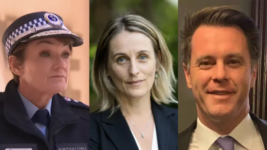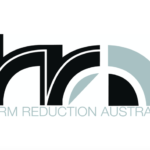There’s a Desperate Need for Reform in the NSW Police Force

Lifeless bodies are piling up in this state as a result of NSW police, which, as of mid-May, has fatally tasered a great-grandmother and shot dead two others, which are tragedies that have involved trigger-happy officers reaching for weapons to use on people having mental health episodes.
The latest casualty transpired late on Wednesday night, when officers were called out for a welfare check of a 43-year-old man, who, after he appeared out front of his residence in Sydney’s Glebe armed with a knife, was tasered by one officer and then shot dead by another straight afterwards.
As the NSW Police Force has outlined in a statement regarding the 19 July inner west shooting, “a critical incident team from the State Crime Command’s Homicide Squad will investigate” the shooting, with the state’s only police watchdog oversighting the investigation.
Of course, police investigating police is part of the problem. The recent killings are not the first, and as was evidenced on Wednesday night, no effective measures have been taken to curb this issue, since an officer tasered a 95-year-old and another shot a 41-year-old man holding knives in May.
And the latest shooting came on the same day as the NSW Supreme Court released a damning appraisal of the “excessive use of force” and blasé approach senior constable Kristian White took when tasering 95-year-old Clare Nowland, who stood before him with the aid of a walking frame.
Blue-clad killers
“We have a police problem in NSW and to suggest otherwise is part of the problem,” NSW Greens MLC Sue Higginson told Sydney Criminal Lawyers on Thursday. “The body of evidence that we have a police problem is growing each day.”
“We are seeing more instances of police being called to deal with vulnerable people in the community and rather than deescalating the situation they reach for a gun when they could employ a taser and a taser when they should be employing calm and care,” she underscored.
NSW Supreme Court Justice Robert Beech-Jones released a statement on 19 July detailing that 33-year-old White, who’s facing three assault charges, with the most serious being recklessly causing grievous bodily harm, tasered the elderly woman with dementia after warning her to drop a knife.
White was standing 1.5 to 2 metres away from Nowland, who was approaching him and a fellow officer, quite slowly, as she was using a walking frame to do so, whilst holding a steak knife. Prior to tasering, White said, “Stop, just… nah, bugger it.”
Nowland then fell and hit her head after being tasered and died in hospital a week later.
But in terms of the prosecution, Higginson said that “responding to one individual officer or incident doesn’t deal with the system failures and culture that caused this and the other terrible incidents where NSW police have used excessive force and people have been seriously injured or killed”.
Investigating its own
Sections 230 and 231 of the Law Enforcement (Powers and Responsibilities) Act 2002 permit NSW police officers to “use such force as reasonably necessary” when exercising a function in general and when making an arrest, respectively.
The question is whether firing four shots at a man holding two chief knives in a North Willoughby street in May, shooting a man immediately after he’d been tasered in Glebe this week, as well as tasering a 95-year-old woman with dementia in a nursing home is “reasonably necessary” force.
“The accountability responses to Clare Nowland’s death to date are simply not commensurate with what happened, what is required and community expectation,” Higginson said, as she inferred that regardless of whether White is found guilty of assault regarding the death, it won’t prevent the next.
“The community should expect and, rightly, demand the NSW minority Labor government to improve policing in NSW,” the Greens justice spokesperson continued. “We have a police integrity and accountability system that is not working as well as it should be.”
What the community has got instead is mostly police investigating police, whilst the sole independent NSW police watchdog, the Law Enforcement Conduct Commission (LECC) isn’t charged with investigating police critical incidents, but rather only oversights most of them.
The LECC commenced in mid-2017, after being established under 2016 legislation passed by the Baird government. And one can presume that the NSW Police Force and the Police Association of NSW were satisfied with the level of oversight this amalgamation of previous watchdogs resulted in.
“The police independent integrity and accountability body that’s meant to oversee policing has stated that it doesn’t have the oversight powers required to do accountability well,” said Higginson, adding that she’s seeking commitment from the Minns government to embark on reform.
NSW: the police state
With a population of a little over 8 million people, NSW has one of the largest police forces on Earth. The NSW Police Force Annual Report 2021-22 states that it then had 17,659 officers on the beat, which calculates to around one police officer for every 460-odd citizens.
And no one is really too sure what it is that warrants such a show of force in the most populous state in Australia.
Higginson is pushing for a select committee parliamentary inquiry into the NSW Police Force. Yet, she’s clear that “to date” she has not received any support from the incoming Minns government and NSW police minister Yasmin Catley, whose watch the recent deaths have occurred on.
The mid-1990s Royal Commission into the NSW Police Service uncovered evidence of entrenched corruption, which included state law enforcement officers selling heroin out the back of police stations, running then illegal sex work services and trading in child pornography.
Also known as the Wood Royal Commission, the inquiry’s six volumes of findings served to clean up NSW police operations, with one outcome being the establishment of a state police oversight body.
But the more than two decades since the last probe has seen major developments in how the NSW community is policed, with drug dog use and strip searches rife, along with the now highlighted issue of sending out officers to deal with mental health episodes only to kill the individual in need of help.
“The police minister needs to understand it is not tenable to take a business-as-usual approach to the growing police problem,” Higginson said in conclusion.
“When we talk about the police problem, we are talking about the system of policing and the people who feel the full brunt of this problem being the police, vulnerable people, women and First Nations people.”







